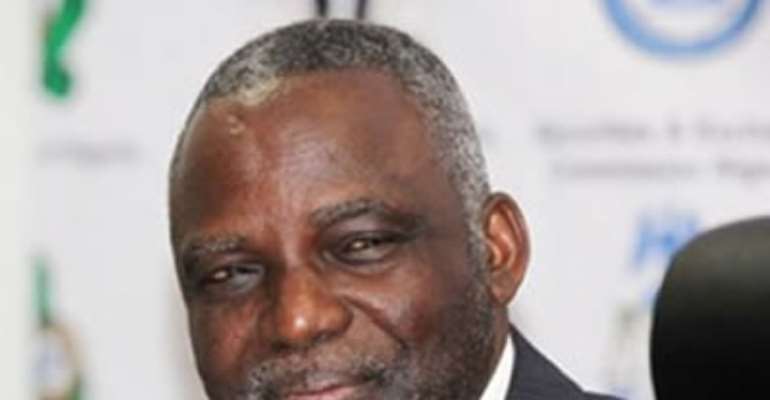Electricity Generation: FG Set To Implement EPRA

ABUJA, August 13, (THEWILL) - The federal government will soon embark on complete implementation of the provisions of the Electricity Power Reform Act (EPRA) of 2005, in its bid to find a lasting solution to inadequate power supply.
In addition to endorsing the establishment of the Nigerian Electricity Regulatory Commission (NERC) “to provide for the licensing and regulation of the generation, transmission, distribution and supply of electricity,” the EPRA provides that companies will be formed to take over the functions, assets, liabilities and staff of the National Electric Power Authority (NEPA) in order to “develop a competitive electricity market.”
The Act also empowers NERC to enforce performance standards, consumer rights and obligations, and provide the determination of tariffs and other related matters.
Minister of Power, Prof. Barth Nnaji, flanked by the minister of state for power and senior special adviser to the president on media and publicity, Dr. Reuben Abati, made these disclosures on Monday while briefing State House correspondents after a meeting with President Goodluck Jonathan on the performance of his ministry in the implementation of the 2012 budget.
Nnaji, who described power generation as the biggest problem of the nation, revealed that his ministry received the sum of N75.5bn as budgeted for 2012 while the National Assembly provided for N78bn, the difference being the lawmakers’ additions for some constituency projects.
He revealed also that his ministry’s performance in the implementation of the budget was 52.9 per cent, explaining that out of the 75.4bn budgeted for capital project, N21.5bn had been released and N11.4bn had been used.
Speaking on a range of efforts to raise power generation in the country, he said, “With the privatisation, the expectation is that the Transmission Company of Nigeria will get the bulk of the funding going forward, and so there will be increase in the funding of the TCN. But the generation companies will now be funded through the private sector. Also the distribution companies will be funded through the private sector.
“Government is also interested in developing alternative sources for generating power and these alternative sources can be renewable sources as well as coal. The Bulk Trader is a critical element of the reform, as he is the one who purchases power from the investor.
“The privatized generation companies will have to work with the Bulk Trader because these people need to have their power project guaranteed and the government mechanism for doing this is through the Bulk Trader.
“They will be there for a period. They will be there until there is confidence in the market. It is like a middle man. The transaction between the generator of power and all those distributors of power is not one that people have confidence in now, because the generator of power would feel that the distributor of power is not a credit-worthy entity; so, government kind of stands behind the generator of power.
“If the distributor of power does not pay, the government will then step in to foot the bill. “That is what the government is doing to create confidence in the market. By doing that in effect, what we find is that the Bulk Trader provides the guarantee. This is coming from the World Bank Partial Risk Guarantee, but the government guarantees the Bulk Trader.”
Nnaji also spoke on the Multi Year Tariff Order, designed “to ensure that urban poor and the rural dwellers pay less and that there is some slight increase for the lower middle class, and that those who are to be paying, (the big consumers) are able to,” describing it is a good strategy for the power sector, as Nigerians would be paying “cost-reflective tariffs.”
